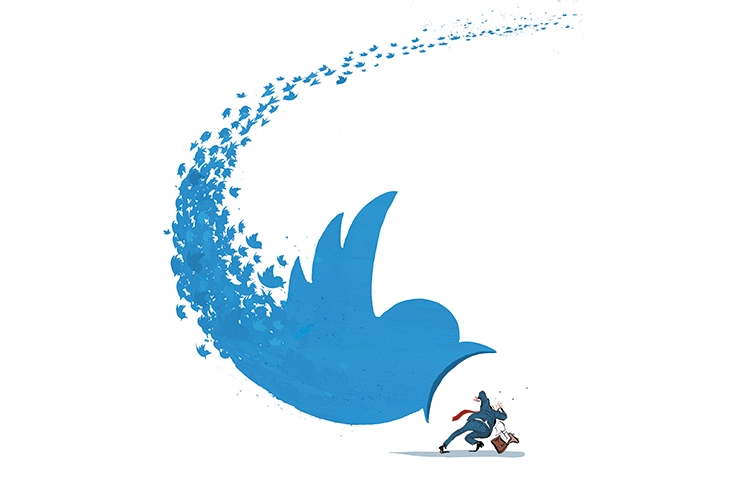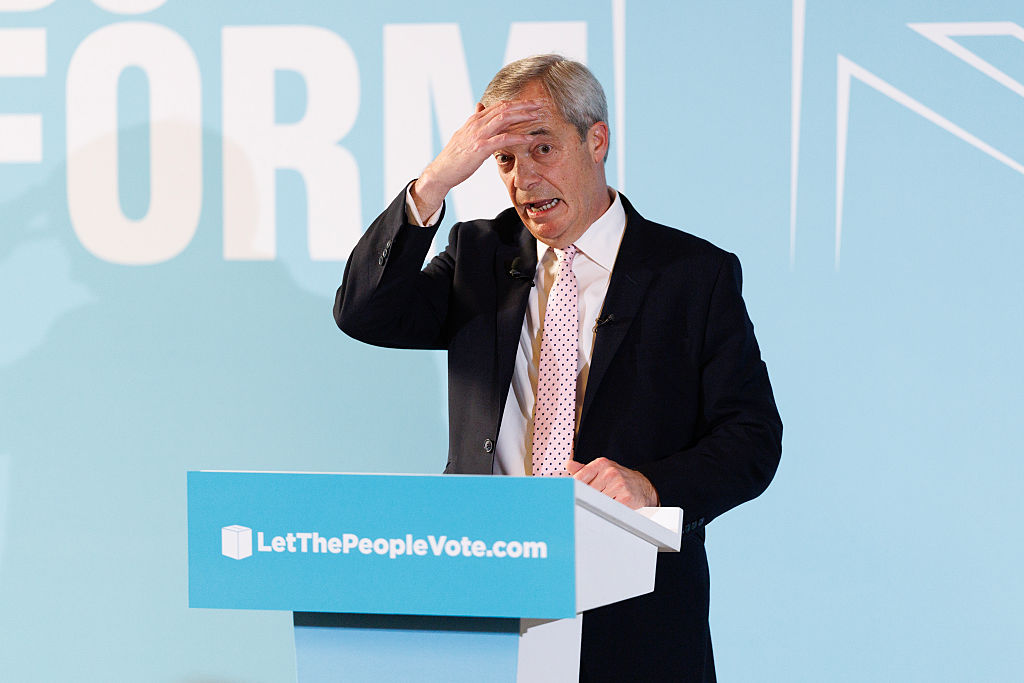Even by its own standards, Twitter has been an asylum of late with a lynch mob going after our associate editor Douglas Murray. An interview he gave months ago has been selectively edited and republished to misrepresent him and, in effect, make out that he was encouraging riots. This is how Twitter works. People respond, others respond to the response and an inverted pyramid of piffle is built. I don’t follow Alastair Campbell, but it seems he has been telling me that unless I condemn Douglas then I myself would apparently “stand condemned.” By no less a moral authority, it seems, then Campbell himself.
Andrew Neil has rightly pointed out that hell really will freeze over before a Twitterstorm makes The Spectator turn on a star columnist who has brought so much to the magazine over so many years. The idea that we would do so now, at Campbell’s behest — or that of his fellow trolls — is laughable. Andrew has also banned advertisers who complain about our columnists. Hopefully the message has gone out by now that The Spectator isn’t edited by Twitter.
The Spectator will not be bowing to the mob. Not now, not ever.
We never normally refer to Twitter madness in The Spectator. “Never waste time bouncing off the effluent of morons,” Douglas wrote in one of his superb Spectator columns. “For instance, it is a rule among British columnists never to use the term ‘Owen Jones’ in an article. It is too easy. Every couple of hours there will be another gaseous eruption.”
So we do not, in The Spectator, refer to characters in the Twitter freak show: Katie Hopkins, Campbell, Jones, et cetera. Reacting to their nonsense consumes mental energy that can be more usefully deployed elsewhere. The answer to “why haven’t you responded to this comment on Twitter” is always a simple one: “because we are not certifiably mad and will leave such debate to those who are.” Twitter is dedicated to breaking down such restraint, finding ingenious ways to provoke and serving a menu of things to abhor: real or concocted. Its “Live on X” sidebar identifies comments the user is likely to regard as egregious, so as to solicit a reaction. Its QT function lies waiting for you to pour scorn over the comments of an idiot. It is saying: “Look at what Campbell has said now, Fraser. Outrageous! Surely you won’t let him get away with it? Click here, to express your condemnation.” In this way, Twitter users are invited to join its moronic dance. If you start to boo, you become part of the show.
For a publication to be drawn into Twitter nonsense, even to condemn it, is to be indirectly edited by Twitter. This is why we never do it. But when I went through my inbox this morning, I found emails from many readers who could see a character assassination attempt underway and who had written in, defending Murray. We only print letters in the magazine in response to articles, but I thought I should publish the below email from Justin Stebbing, a renowned oncologist. It resonated with me because it sums up my own feelings — and, I suspect, those of a great many readers:
I am writing to express my unwavering support for Douglas Murray, whose insightful and articulate commentary has been a beacon of clarity and reason in today’s complex political landscape. His contributions to The Spectator have consistently demonstrated a profound understanding of global issues, particularly the intricacies of Middle Eastern politics and the defence of Israel.
His writings provide a balanced perspective that champions truth and moral clarity, qualities that are increasingly rare yet desperately needed. His ability to dissect and articulate the nuances of geopolitical conflicts with precision and empathy is a testament to his intellectual rigor and commitment to justice.
His stance is rooted in a deep understanding of historical and contemporary contexts, which he conveys with both passion and reason. As he aptly stated, “It’s moral hygiene to try and clean some of this up. When ninety-nine lies are being told and one truth, the truth will eventually win.” This commitment to truth is what sets him apart as a commentator and public intellectual.
His broader contributions to political commentary, such as his critiques of western self-laceration and his defense of western values, highlight his role as a crucial voice in contemporary debates. His ability to engage with a wide range of topics, from the rise of extremism to the cultural and political challenges facing the West, underscores his versatility and depth as a thinker.
The attempts by political figures like Campbell to silence him not only undermine the principles of free speech and open debate but also seek to deprive the public of a valuable perspective that challenges prevailing narratives. It is imperative that we stand by commentators like Murray, who courageously speak the truth, even when it is unpopular. His brilliance, clarity of thought, and unwavering commitment to truth make him an indispensable asset to your publication and to the broader conversation on critical global issues.
Amen to all that. Douglas wrote the definitive piece about Twitter lynch mobs when he exonerated Roger Scruton by securing the raw footage of the interview that had been so egregiously misrepresented by George Eaton. His scoop and cover piece changed the debate: it was the high watermark of Twitter character assassination because Murray had calmly taken this madness apart and it stood exposed. So did those who get sucked into them. We saw how partial quotes can be maliciously assembled to smear — and how easily a mob is assembled to condemn.
His column last week, incidentally — looking at the deprivation levels and local economic dysfunction in rioting areas — was thoughtful, original and generated more new subscriptions than any other article we published this year. That’s proof of just how utterly detached these pointless Twitterstorms are from the real world.
It’s almost exactly fifteen years since I first became editor and was told about Douglas by the writer Ruth Dudley Edwards who said he was one of the best young essayists thrown up by our country for quite some time. I’d remove “one of.” So, sorry, Alastair Campbell et al: The Spectator will not be bowing to the mob. Not now, not ever.
This article was originally published on The Spectator’s UK website.


























Leave a Reply